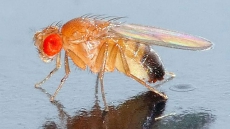An Indian-origin scientist has developed a new one atom-thick flat material that could upstage the wonder material graphene for having properties allowing it to be used in advance digital technology.
Discovered by Madhu Menon, physicist at the University of Kentucky in the US, the new material is made up of silicon, boron and nitrogen - all light, inexpensive and abundant elements. The material is stable, a property many other graphene alternatives lack.
“We used simulations to see if the bonds would break or disintegrate - it didn't happen. We heated the material up to 1,000 degree celsius and it still didn't break,” said Menon, physicist in the centre for computational sciences. The discovery is reported in a paper in Physical Review B.
Using state-of-the-art theoretical computations, Menon and his collaborators demonstrated that by combining the three elements, it is possible to obtain a one atom-thick, truly 2D material with properties that can be fine-tuned to suit various applications beyond what is possible with graphene.
Menon's colleagues were Ernst Richter from Daimler in Germany and Antonis Andriotis from Institute for Electronic Structure and Laser (IESL) in Greece.
While graphene is touted as being the world's strongest material with many unique properties, it has one downside: it isn't a semiconductor and therefore disappoints in the digital technology industry.
The three elements forming the new material all have different sizes; the bonds connecting the atoms are also different.
As a result, the sides of the hexagons formed by these atoms are unequal, unlike in graphene.
The new material is metallic but can be made semiconducting easily by attaching other elements on top of the silicon atoms.
“We know that silicon-based technology is reaching its limit because we are putting more and more components together and making electronic processors more and more compact," Menon said adding "but we know that this cannot go on indefinitely; we need smarter materials.”
He said they were anxious for this to be made in the lab. "The ultimate test of any theory is experimental verification, so the sooner the better!” Menon added in a paper.
This discovery opens a new chapter in material science by offering new opportunities for researchers to explore functional flexibility and new properties for new applications.





